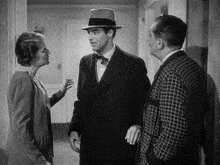-
Posts
457 -
Joined
-
Last visited
Content Type
Profiles
Forums
Events
Books
Everything posted by Hux
-
shot myself. The end.
-

Your Book Activity 2023
Hux replied to lunababymoonchild's topic in Book Blogs - Discuss your reading!
Started '20,000 Streets Under the Sky' by Patrick Hamilton. -
Junky (1953) William S. Burroughs A rather disjointed narrative about a man (Burroughs) dealing with his opium addiction. The book feels very lightweight with stark language which is matter of fact and straightforward. It all feels somewhat thrown together with very little time to flesh out either the characters or the general themes of being an addict. The story follows the narrator as he travels from city to city (before finally ending up in Mexico) tying to feed (or escape) his habit. While Burroughs does a good job of detailing the physical and mental experiences of being a junky, it is all done to a backdrop which lacks context. People turn up (Bill, Roy, Ike, Lupita, etc) but are never more than cardboard cut outs, operating as a kind of vague cast of dreamed individuals. Which brings me to his wife (and children). They suddenly appear from nowhere, without background, without names. And it's only after you're coming to terms with the narrator's regular desire to have sex with boys that you're even informed of this non-descript wife whose presence (in the face of such terrible drug addled behaviour) is slightly inexplicable. Who is she? What is her name? Where did she come from? But again, the book focuses purely on the myopic and selfish world of the addict so I suppose an argument can be made for justifying such narcissism and self-obsession. The fact that the character (Burroughs) opens the book by admitting to his immensely comfortable background adds another layer to this lack of self-awareness. Ultimately, the book is readable and does a good job of exploring addiction. But it's also a little flat and forgettable. 5/10
-

The last one to post here wins
Hux replied to Older Fish's topic in Quiz Room / Thread Games Jokes etc
-

The last one to post here wins
Hux replied to Older Fish's topic in Quiz Room / Thread Games Jokes etc
world of sport.mp4 -
The Secret History (1992) Donna Tartt This was a gripping page turner, highly entertaining, and immensely fun to read. But ultimately of little literary significance. The story revolves around some posh university lads killing their friend Bunny (this is revealed in the prologue). Richard, the narrator, is not from a moneyed background like them but through a shared love of Greek language and history, he manages to convince the mercurial tutor, Julian, to allow him to be the sixth member of their exclusive class. There are university shenanigans, visits to stately homes owned by their families, and endless drinking binges. Richard becomes a member of their group... but not entirely. Then comes a revelation which results in the death of a man during a fit of religious (or drug induced) intoxication. Bunny finds out about it and begins to threaten exposure. So they kill him. Like I said, it's very entertaining stuff. At least up until the funeral when I started to gradually lose interest. But by the end of the book, I was slightly underwhelmed. I mean, a guy meets some random posh kids and, having known them five minutes, agrees to be complicit in the murder of their friend? Really? He knows nothing about these people and yet goes along with it. This is only further highlighted by the fact that more secrets are revealed about each of the characters only after the murder. Yet Richard (a rather blank and empty vessel) is happy to go along with it for reasons which are never really explained. Is he a sociopath? Does he hate Bunny? Not as far as I could see. And then, as if to make up for the fact that the murder (and therefore the most interesting part of the book) is over, Tartt throws in some incest and romantic melodrama to keep you invested. But I was ready for it to end by that point. The prose is very basic, stark, even, with only a few occasional flourishes. It's essentially what you'd expect from a piece of contemporary fiction. The plot is doing all the heavy lifting here. If plot driven page turners are your thing, you'll love this book. I certainly enjoyed it, but I rarely care about plots in literature so it probably won't live long in the memory. Overall, I'd recommend it as a fun beach read. But little more. 7/10
-

The last one to post here wins
Hux replied to Older Fish's topic in Quiz Room / Thread Games Jokes etc
-

The last one to post here wins
Hux replied to Older Fish's topic in Quiz Room / Thread Games Jokes etc
-

The last one to post here wins
Hux replied to Older Fish's topic in Quiz Room / Thread Games Jokes etc
Ok -
Take
-
Do
-

The last one to post here wins
Hux replied to Older Fish's topic in Quiz Room / Thread Games Jokes etc
Huw Edwards!! -
Biscuit
-
from Whitby. Then something strange happened. I was suddenly transported to...
-
Slop
-
Cabinet
-

The last one to post here wins
Hux replied to Older Fish's topic in Quiz Room / Thread Games Jokes etc
Win, win, win, win, win, win, win, win, win, win, win, win, win, win, win, win, win, win, win, win, win, win, win, win, win, win, win, win, win, win, win, win, win, win, win, win, win, win, win, win, win, win, win, win, win, win, win, win, win, win, win, win, win, win, win, win, win, win, win, win, win, win, win, win, win, win, win, win, win, win, win, win, win, win, win, win, win, win, win, win, win, win, win, win, win, win, win, win, win, win, win, win, win, win, win, win, win, win, win, win, win, win, win, win, win, win, win, win, win, win, win, win, win, win, win, win, win, win, win, win, win, win, win, win, win, win, win, win, win, win, win, win, win, win, win, win, win, win, win, win, win, win, win, win, win, win, win, win, win, win, win, win, win, win, win, win, win, win, win, win, win, win, win, win, win, win, win, win, win, win, win, win, win, win, win, win, win, win, win, win, win, win, win, win, win, win, win, win, win, win, win, win, win, win, win, win, win, win, win, win, win, win, win, win, win, win, win, win, win, win, win, win, win, win, win, win, win, win, win, win, win, win, win, win, win, win, win, win, win, win, win, win, win, win, win, win, win, win, win, win, win, win, win, win, win, win, win, win, win, win, win, win, win, win, win, win, win, win, win, win, win, win, win, win, win, win, win, win, win, win, win, win, win, win, win, win, win, win, win, win, win, win, win, win, win, win, win, win, win, win, win, win, win, win, win, win, win, win, win, win, win, win, win, win, win, win, win, win, win, win, win, win, win, win, win, win, win, win, win, win, win, win, win, win, win, win, win, win, win, win, win, win, win, win, win, win, win, -
The Thief's Journal (1948) Jean Genet A book which is dense with inventive prose and creative language. Given the subject matter, it's quite the incongruent accomplishment, to describe a world of such petty theft, prostitution, and underground homosexual activity with so deft a touch. At times the writing can be a little stuttered, often when Genet is going on flights of philosophical fancy, but when he commits to the broader strokes of his European narrative (his youthful life of sexual escapes and adventures), it takes on a genuine note of the lyrically sublime. The book is a combination of fiction and life writing; a kind of Celine meets Laurie Lee. And like Lee, it begins in Spain before moving briskly around Europe before settling (for the most part) in Belgium. Genet uses his own name and regularly addresses the reader, but admits that his recollections are more interpretation than memory. The vast bulk of the book is confined to Genet's endless ability to fall in love with men at the drop of a hat. He becomes the lover of criminals, policemen, thugs, you name it. And speaks of each encounter as though it's a genuine (and profound) experience of love. I must say... I didn't believe him. In fact, my only criticism of the book would be Genet's constant need to conflate sexual urge with love. And then to wallow in the bizarre narrative that betrayal, promiscuity, and gradual indifference are the truest forms of expressing that love. Yeah, like I said... I didn't believe him. But anyway... The writing is (mostly) magnificent and Genet's use of language is quite amazing. His life is more interesting than most and he does a good job of capturing a small portion of it here. At times, it was like reading poetry. To quote the man himself: 'I have made it sound heroic because I have within me what is needed to do so, lyricism. 8/10
-

The last one to post here wins
Hux replied to Older Fish's topic in Quiz Room / Thread Games Jokes etc
. -

The last one to post here wins
Hux replied to Older Fish's topic in Quiz Room / Thread Games Jokes etc
Agreed. -

The last one to post here wins
Hux replied to Older Fish's topic in Quiz Room / Thread Games Jokes etc
Hmmm -
Cup
-

Your Book Activity 2023
Hux replied to lunababymoonchild's topic in Book Blogs - Discuss your reading!
Started 'Thief's Journal' by Jean Genet. -
Sausage
-
Bush







